We invite our Network to submit op-ed pieces and testimonials that raise awareness about a particular topic or offer readers a personal narrative about the value of professional development programs offered by the Faculty Resource Network. If you would like to be featured, submit an op-ed or testimonial for consideration.
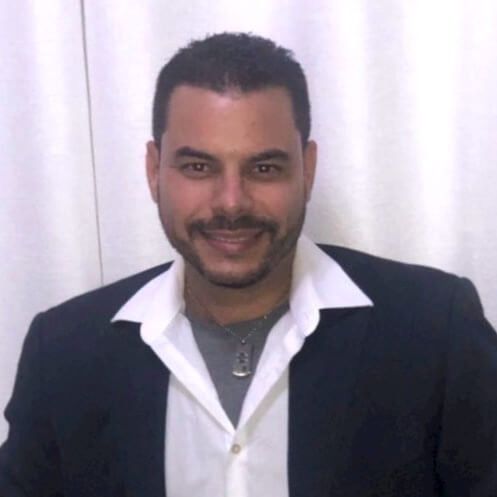
March 15, 2024
FRN: A Self-Paced Momentum to Meet a Goal
Daniel Rodríguez Howell, PhD
University of Puerto Rico, Humacao
I have been a Faculty Resource Network (FRN) liaison for over four years. The FRN has been a terrific experience as a professor and liaison, as I have been a beneficiary of opportunities, tools and experiences offered by the FRN. First, I was part of the 2019 NYU FRN Scholar-in-Residence (SIR) Summer Program. It was such an innovative experience because, beyond attending numerous in-person or virtual conferences, nationally and internationally, this was the first time that I stayed a month in a self-paced academic and professional environment in which I could focus entirely on my goal, without distractions or interruptions. I wanted to join efforts with a writer with experience in evidence-based articles, so I could have my first publication in a peer-reviewed journal. I needed feedback from an expert in Community Health Nursing and Leadership. The FRN team connected me with Dr. Michele Crespo-Fierro from Rory Meyers College of Nursing. Thanks to this alliance, we published an article in the International Journal of Nursing and Health Care Science titled “Community alliance and empowerment: An interprofessional project in Puerto Rico.”
I was so dedicated to writing that I decided to finish my book titled “Commitment: The true path to leadership,” which I had started writing in 2018. The book was published in 2020. I consider myself a true example of a very busy person who knew how to take advantage of all the FRN offerings to achieve my goals and go beyond my own expectations. On a personal note, this experience was very rewarding because I ended up making new and excellent friends.
Separately, I attended the FRN Winter 2020, which was held at the Universidad del Sagrado Corazón in Puerto Rico, specifically, the session titled “Journeys are Stories: Plots, Mobility, and Life Writing.” Here, I interacted with a diverse group of professors from different universities, which enriched me with a unique experience of professional development.
Following my FRN journey, I felt blessed when the FRN invited me to serve as speaker as part of the 2021-2022 FRN Leadership Initiative Program to present on the topic of self leadership. Today, this opportunity is still opening doors, since I offer training in diverse leadership topics. Lastly, my satisfaction with the FRN grew bigger when I was invited to serve as panelist at the 2021 FRN National Symposium Special Panel Discussion titled, “Leading Higher Education Change During a Time of Transition.”
There are many stories that I could tell about how important it is to keep the FRN program alive. The FRN Team has trusted my talent and I am eternally grateful. That is why, I spread the word among colleagues to make them aware of the opportunities the FRN program has for professional and personal enhancement. The available tools and resources are endless. As of those colleagues I met in one month from around the world, today, they are friends forever.
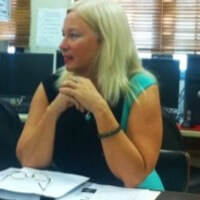
December 7, 2023
The Faculty Resource Network, A Professional Friend
Cynthia Pittmann, PhD
University of Puerto Rico, Río Piedras
The Faculty Resource Network has been a professional friend since 2013 when I started taking advantage of the professional development opportunities offered during FRN Network Summer. It has become a trusted source of information where I can learn about or build on knowledge in specific areas. For example, in the early days of adapting to technology in the classroom, I learned to update my skills through using blended-learning techniques (Multiple Dimensions of Blended Learning, James Stenerson, Beth Gordon, Sarah Burns-Feyl, 2014). I also continued to address reaching students who immerse themselves in social media (More Connected, More Disconnected: Millennials and Social Media, Kyra Gaunt, 2016). Between these two seminars, I was able to balance that push to evolve by addressing the fundamentals of teaching reading and writing in the college classroom (Reading Rigorously, Writing Eloquently—and Persuasively—Across Disciplines (Pat C. Hoy II, 2015). I came back from these seminars and enthusiastically shared what I learned through workshops and meetings. As the acting director of the English department, I found the seminars helped me to implement strategies to update our curriculum. The stimulating exchanges with other participants in the seminars helped me to critically analyze the pros and cons of curriculum change.
I attended an engaging Symposium in Miami, Florida centered on having difficult conversations about controversial topics (Critical Conversations and the Academy, 2019). Again, the timeliness of this topic could not be underestimated. When I took on teaching in the University of Puerto Rico’s prison project, I sought out ways to integrate other genres to hold the interest of my students. I took a virtual seminar that focused on screenplay writing (Dramatizing History: Storytelling in the 21st Century, Michael Dinwiddie, 2020) and an in-person seminar, with a unique approach to teaching comics (Anti-Racism, Inclusion, and Diversity in Comics and Comic-Inspired Media, Heather Homonoff Woodley, 2022). Both seminars encompassed diverse approaches and topics, which afforded me the opportunity to update my class material and be more effective and inclusive with all students.
In January 2023, I attended FRN Network Winter for the first time in Puerto Rico, my homebase. The information and techniques I learned in Trauma-Informed Pedagogy: Somatic Practices, Discussion Guidelines, and Community Dynamics (Hannah R. Bacon and Catherine Cabeen) have already been implemented in my courses. My ongoing concern about student anxiety was effectively addressed in various transformative actions. For example, I incorporated suggestions about setting up student non-harming agreements and a method to interrupt when students are triggered during class discussions. I have made changes to the class Journal Project and provided space for breathing and other “check in” exercises before presentations and exams. I have also incorporated an interdisciplinary topic area on happiness in a unit of the Literature and the Human Condition II course. Further, I am integrating parts of this knowledge into trauma-informed pedagogical practices in my role as the external evaluator of UPR’s Student Support Services Program on the Rio Piedras campus. The knowledge gained and networking fostered through the FRN has helped me to understand how to better meet new professional challenges. I offer a heartfelt thank you to the Faculty Resource Network for helping me to lift students and address their needs by keeping me updated on the latest pedagogical topics, techniques, and methods.
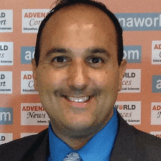
December 7, 2023
The Crown Jewel of Visiting Scholar Programs
Emanuel Boussios, PhD
Nassau Community College
The Faculty Resource Network (FRN) visiting scholar programs have been an experience of intellectual enrichment and superior networking. I have been so fortunate to be part of this ongoing program in the past decade and have seen my research agenda develop expeditiously and my web of networks proliferate. My area of interest, cybersecurity, is rather niche and a world class institution such as NYU has been an ideal place to engage in significant academic work. I was able to capture a wider research audience and be granted copious access to library materials coupled with a willing staff to see that faculty, such as myself, had the resources necessary to optimize success. The FRN recognized the need to provide research and networking opportunities for scholars that may not have the required resources at their home institutions. These networking opportunities are available to select scholars in the summer, fall, and spring terms and have adapted to the changing times in both being face-to-face as well as remote. Junior faculty in particular face enormous challenges in establishing themselves professionally in scholarly research, although this is common among all scholars in the FRN, and are under pressure both to publish original research and to shoulder full-time teaching loads. The FRN felt that reaching out to institutions around the country and investing in scholars and their future would be an important way to share its extraordinary resource of America’s most distinguished professors in the arts, humanities, social science, STEM, and business.
What I found most gratifying is that FRN is unique in its ability to offer fellowships that enable scholars, such as myself, to combine their independent research with active involvement in NYU’s many programs and activities within the vibrant scene of New York City life. Free of regular teaching and administrative responsibilities, scholars are enabled the opportunity to make strides in their individual research and writing projects. Through the FRN Scholar-in-Residence Program, each scholar works directly with an NYU mentor in their respective fields. Many of us meet informally presenting research and responding to questions and comments from colleagues in the program, interested NYU-at-large members, and researchers from neighboring institutions. Throughout my mnay residencies, I spent a significant amount of time at the physical library at NYU Bobst, with research librarians, utilizing its digital holdings. I also participated in conferences and contributed ideas and perspectives outside of research projects. Our twice-monthly meeting, luncheons and dinners on campus with visiting scholars feature presentations and commentaries on a variety of subjects which bring together members of surrounding academic, and cultural communities for discussions on timely issues.
In sum, the FRN has been a rewarding experience for emerging scholars and more established members alike. I have been further enabled with the intellectual challenge of moving beyond the constrictions of a university department and the ability to collaborate with, and acquire knowledge from, scholars representing diverse programs and institutions. In turn, my home institution has benefitted from the new insights and perspectives I have gained during my stays as an FRN visiting scholar as I have brought a new vitality to the classroom and the academic community at large. For this, I am so grateful.
About the author: Emanuel Gregory Boussios, PhD, is a SUNY Chancellor’s Award–winning professor at SUNY-Nassau Community College and a decade-long visiting scholar at NYU’s Faculty Resource Network. Dr. Boussios has served as Visiting Research Scholar at the Saltzman Institute of War and Peace Studies at Columbia University. His research interests include analyzing American attitudes towards the War on Terrorism and domestic terrorism in the U.S., as well as studying national/international use of drones, and cyber-intelligence. Dr. Boussios is currently writing a book entitled “The Surveillance State: CyberSpace Post-Snowden and Beyond” and will be publishing this manuscript in early 2024 with Rowman and Littlefield Publishers.
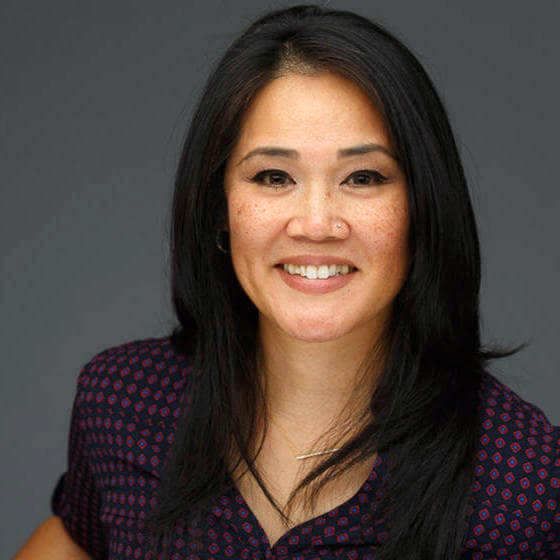
September 13, 2023
Investing in Faculty Resources Brings the Best of All Worlds to Your School
Evelyn I. Rodriguez, PhD
University of San Francisco
While it sometimes feels like we are more divided than ever, there are still some things almost all Americans can agree on: it’s still fun to watch the Super Bowl, air travel is not what it used to be, and teachers need good resources to teach well.
In a perfect world, every televised football game would have great commercials, airplanes would still get us where we need to be on-time, and all schools would be able to provide educators with what we need to help our students and scholarship flourish. And, while I don’t know any ad or airline executives, I am a teacher. I can attest to the fact that the Faculty Resource Network (FRN) at New York University is a tried and true way for smaller schools to offer their faculty access to world-class resources to support our teaching and research.
I joined the full-time faculty at the University of San Francisco (USF) after completing my doctorate degree. I have no regrets about joining a smaller school. I love that our president knew my face and name at faculty orientation, and I like to imagine that’s how my students feel when they walk in on the first day and I already recognize them. USF, with just over 10,000 enrolled students, cannot possibly afford the kinds of research and teaching tools schools the size of a small city (like NYU) can pay for.
This is where the FRN steps in.
Through USF’s membership in the FRN, at critical points in my teaching career, I have been able to access and utilize NYU’s 10-library system, which constitutes the fourth largest library system in the nation, with over 16 million volumes. And I have been able to learn from, exchange ideas with, and become connected to, brilliant and innovative colleagues from Hawai’i to Puerto Rico, who have inspired and supported me in designing new curricula, advancing my research and writing, and developing new teaching practices to better serve our diverse students, and help me practice better self-care at our institution.
My first experience with the Faculty Resource Network was as a participant in the week-long seminar, “America’s Paradise: Re-imagining Hawai’i,” hosted by Chaminade University of Honolulu, and facilitated by Professor John (Jack) Kuo Wei Tchen, arguably one of the country’s premier practicing public Asian Pacific American intellectuals. This class gave me the time, space, and community to familiarize myself with past and current anti-racist and anti-colonialist Hawai’i literature, to become a beneficiary of the generous informal mentorship of senior colleagues like Jack and the seminar’s other participants, and to ultimately revise the introductory course in our Asian American Studies curriculum, to more meaningfully integrate Hawai’i history, viewpoints, concerns.
Several years later, a USF colleague and I participated in separate FRN seminars on Pacific issues and arts. A year after, we co-designed and co-taught USF’s first ever course on Oceania. We also organized a semester-long series of events that brought eminent scholars, artists, and activists to our campus to help raise our community’s awareness of Pasifika places, people, and social issues, and to challenge our Critical Diversity Studies curriculum and programs to become more inclusive and responsible to the communities we study.
This past Fall, while on sabbatical, I was accepted as an FRN Semester Scholar-in-Residence; and this was precisely what I needed to recover my identity and skills as an intellectual, after serving as chair during my department’s abrupt transition to remote-learning in March 2020.
The early days of my residency, living and working in New York’s Washington Square, were filled with me devouring literature from NYU’s Bobst Library, then following every enticing bibliographic breadcrumb to more relevant scholarship. My NYU Research Consultant arranged for me to participate in a workshop series in her department; and a talk they invited me to share offered me the kind of sharp, invaluable collective feedback I haven’t had since I was completing my dissertation. Being connected to an interdisciplinary Institute at NYU offered me the opportunity to meet potential collaborators on future scholarly projects, and to observe how that interdisciplinary organization creatively supports its students, staff, and faculty. And the refreshing change of scenery—after so much time sheltering in one place—reinvigorated my entire being.
I am returning to USF with a book proposal under review, a clearer vision of my pathway to promotion, new ideas about how to keep our institution’s interdisciplinary programs effective and relevant, an expanded professional and community network, and renewed energy for helping to advance our mission of “educating hearts and minds… to create a more humane and just world.”
All this to say that the Faculty Resource Network can’t bring in Rihanna during break, or move folks through the airports minimally frazzled; but, it can help faculty at smaller institutions feel like we’ve got the best of the both worlds: all the advantages of our home campuses, and access to the wide-ranging and first-rate assets of a large research institution. Leaders who are as dedicated to flourishing their faculty as they are in caring for their diverse student populations are wise to be members of the FRN consortium, because an investment in faculty resources is an investment in faculty, and in institutional growth and vigor.
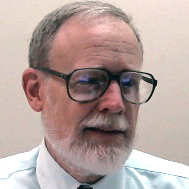
September 13, 2023
The Benefits of Continued Participation in FRN Faculty Development Programs
Paul Wilson, PhD
Shaw University
When the next Faculty Resource Network (FRN) application button appears, stop what you are doing and apply.
One of my colleagues at our HBCU, Shaw University, says I am a veteran. I say she is the FRN seminar poster child. Who’s counting? We both have enjoyed and benefited from the week-long FRN Summer Seminars on the New York University (NYU) campus.
For faculty at member institutions, the FRN makes available the rich and rewarding resources through NYU. Opportunities are spread throughout the year. Unlike my other colleagues, I have not braved the Summer Scholar-in-Residence Program yet. Give me time.
Let’s talk about those summer seminars. If pedagogy is your jam, go. If research excites you like it does me, go. Off-campus attendees will be housed by the FRN for a full week. Days are devoted to seminars led by experts and scholars. You will be with colleagues from across the states and Puerto Rico. The common mid-day catered meal is an exciting time to network and reflect. Evenings allow field trips in New York City. Almost every summer seminar I attended gave back more than I imagined. Using their resources and reflections, I have produced workshops, papers for professional meetings, and an occasional publication.
Did I mention the Remote Scholar Fellowship Program? I count it a blessing to have been selected to participate in this research program. I have been building a resource base in hopes of completing a monograph. Wow. The resources that are available in electronic form through the NYU Division of Libraries are phenomenal. For print editions of resources, you can enlist the aid of a librarian to scan a copy. Of course, if you need assistance, a subject trained librarian can point you in the right direction.
I admit I had some hesitation about applying for the FRN Leadership Initiative Program spread over two semesters. I had no reservations about the quality of the program. I simply had to commit time to complete all twelve sessions, do the readings, and plan to develop a project. The program is a broad leadership program with applications for the academy. Receiving the approval of my department chair and the dean, I applied. I am glad I added this leadership initiative to my list of FRN programs. My peer-group within the program has proven to be a valuable resource for discussing leadership challenges in our universities. Today I cannot give away all my secrets for my leadership project, but I will say I aim to develop a value-added model for my administrative appointment as a program coordinator.
If your institution is a member, check out the FRN program that is right for you. Apply. Maybe I will be sharing seminar notes with you after a mid-day meal.
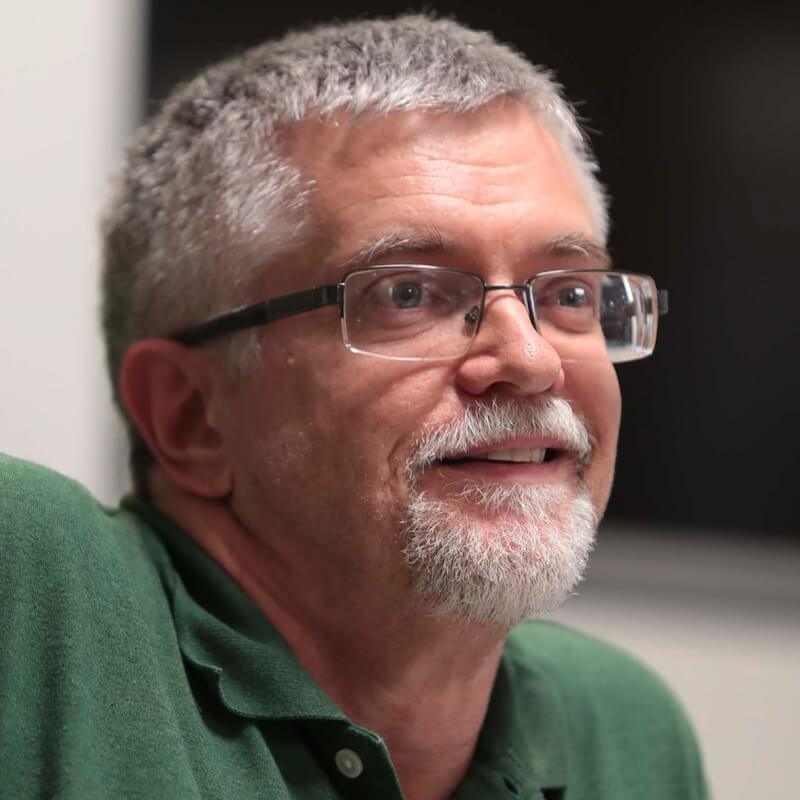
May 12, 2023
A (Dorm) Room of One’s Own
Dr. James Seale Collazo
University of Puerto Rico, Río Piedras
Scholarship has nearly always been done from a position of privilege, with respect to the vast majority of the human population, as studying arcane texts or elusive natural phenomena has never been something most people have had time or resources to do. Academic work requires material access to information in libraries, and other resources like computers and (relatively quiet) space in which to write; it also entails social privilege—being able to say “no” to claims upon one’s time from members of one’s family, community or institution—and cultural privilege: all the different ways of knowing and writing that not everybody acquires.
Nearly a century ago, Virginia Woolf famously pointed out, in the essay whose title I borrow here, how difficult it has been for women to develop as writers; this is also true of other subaltern groups. Gramsci, toiling away at his notebooks in his prison cell, and other geniuses who have done important research and literary creation under the hardest circumstances, are the exceptions. Most of us mortal academics need time and space, and sometimes specialized equipment, to study and write.
I write from a location in academia’s complicated social and cultural hierarchy with a peculiar combination of privilege and its opposite: a tenured Associate Professor of Education teaching 9th grade World History, a leader in the University of Puerto Rico’s faculty association which hopes to become a collective bargaining agent for all UPR faculty. For 4 years I was an Academic Senator at UPR’s flagship campus, which teeters precariously at the edge of the R2 classification: like all UPR faculty, we carry a 12-credit teaching load, and in the midst of UPR’s fiscal crisis, a basic teaching load of 15 credits has been spotted more than once on the horizon. Far beyond the university and the island I inhabit, many more institutions, including historically Black colleges and universities, community colleges, and small undergraduate institutions are being squeezed by neoliberal economic policies and demographic change, with the threat of downsizing or outright closure looming over many private institutions as well as UPR campuses.
Despite being immensely privileged with respect to other K-12 teachers, whose ranks I left to join academia, and to the growing number of non-tenure-track colleagues at UPR, my teaching and activist commitments leave me very little time for scholarly production. Those commitments are choices and my more academically productive colleagues at UPR mostly don’t devote as much time to their students or to our political situation as I do.
This is why the Faculty Resource Network’s Scholar-in-Residence Program has been crucial for me, as it has for dozens of other similarly located scholars who have participated in it. Being a visiting scholar means having several weeks of fairly comfortable lodging in Manhattan, away from from our many other responsibilities, with access to NYU’s wealth of information and technological resources. It helps us advance research and writing projects that would otherwise languish on our more wishful to-do lists. It has been the closest I’m going to get to a sabbatical, and a crucial site for academic production for professors like me, whose commitments make it extremely difficult to set aside the regular writing and study time my friends at R1 universities tell me they need to keep up with their disciplines and produce the research that’s expected of them.
I know how privileged I am, and I make it my business to share that privilege as widely as possible: last year I got the UPR-RP Academic Senate to approve a resolution making the FRN’s programs available to the several dozen full-time non-tenured professors at UPR-RP. An FRN membership lets financially pressed universities like mine leverage NYU’s resources to offer great opportunities for professional development and scholarly production. For me, it has been crucial to maintaining a modicum of academic solvency together with the intensity of my teaching and activism, while giving my aging body enough rest and exercise to keep it all going.
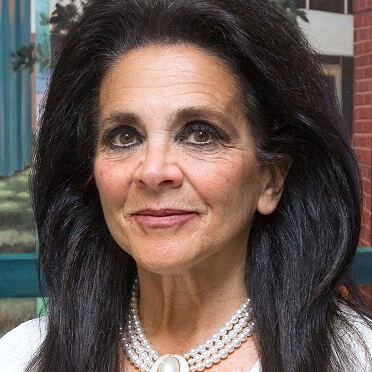
May 12, 2023
A Treasured Value of Scholarly Ventures
Audrey Wolfson Latourette, MA, JD
Stockton University
As a faculty member who has participated since 2005 in a variety of the rich academic experiences proffered by the Faculty Resource Network (FRN), including both summer and full semester scholar residencies, national symposiums both live and virtual, and week-long intensive seminars held at universities in Puerto Rico and Greece, I cannot overstate the value of my institution maintaining a membership in this lauded organization.
As a scholar engaged in legal research, the law library of New York University School of Law, ranked in the top ten of law schools, affords one bountiful offerings of legal research tools such as HeinOnline, Lexis Plus, VitalLaw, Law Journal Library and Proquest that are not available at primarily undergraduate institutions such as my own. Further, in my case, for many years Gretchen Feltes, and more recently Dana Rubin, both NYU School of Law Reference Librarians, graciously served as consultants with regard to my research interests. As a law professor emanating from a primarily liberal arts institution, I deemed it invaluable that the author’s note in my law review articles could state that research was conducted, in part, as an FRN Scholar-in-Residence at NYU, courtesy of the Faculty Resource Network.
Further, as an FRN Scholar-in-Residence, the opportunities for networking with other scholars engendered many invitations to speak at their institutions. I was invited to speak at a variety of universities in Puerto Rico, Hawaii, and New York addressing topics such as “Legal Issues with Regard to Transfer Students,” and “Strategies and Legal Issues with Regard to Articulation Agreements with Two Year Institutions of Higher Education” at Universidad del Sagrado Corazón in Puerto Rico, “Legal Implications of Academic Advising” at Chaminade University of Honolulu in Hawaii, and “Constitution Day: Facebook, Webcams, and the Law” at Farmingdale State College (SUNY) in New York.
My research at NYU, courtesy of the FRN, engendered invitations to speak at NYU as well. Examples include a presentation for the Center for the Advancement of Teaching titled “Plagiarism: Legal and Ethical Implications for the University,” and a presentation at the NYU Grossman School of Medicine addressing the topic of “Plagiarism, Fraud and Ghostwriting: Legal and Ethical Implications for the Scientific Community.” Further, the annual conferences hosted by the FRN afforded me numerous opportunities to present my research with FRN colleagues, typically on-site and more recently, online. For example, I recently presented with colleague Richard Kido from Chaminade University of Honolulu on the topic of “Are Changes to the Way We Teach Due to the Pandemic Permanent?” Further presentations at conferences sponsored by the FRN have included “Addressing the Realities of Sexual Harassment and Sexual Offenses for both University Victims and Offenders in the Context of Title IX Policies and Directives” in Washington, D.C., and “Empowering Democracy Through a Liberal Arts Education” at the University of Miami in Florida, and “Education Law: A Requisite for the Education Major” at Dillard University in Louisiana.
Lastly, I would urge that the human component of the FRN comprised of leadership and a staff that is responsive to all requests, aims to address all issues whether they involve housing, dining, technology or library access. And I would add that the enduring bonds of friendship formed among FRN participants represents a treasured value of this scholarly venture. For all of the above stated reasons, I would urge that participation in the Faculty Resource Network affords an extraordinary opportunity that should be highly valued by institutions of higher education.
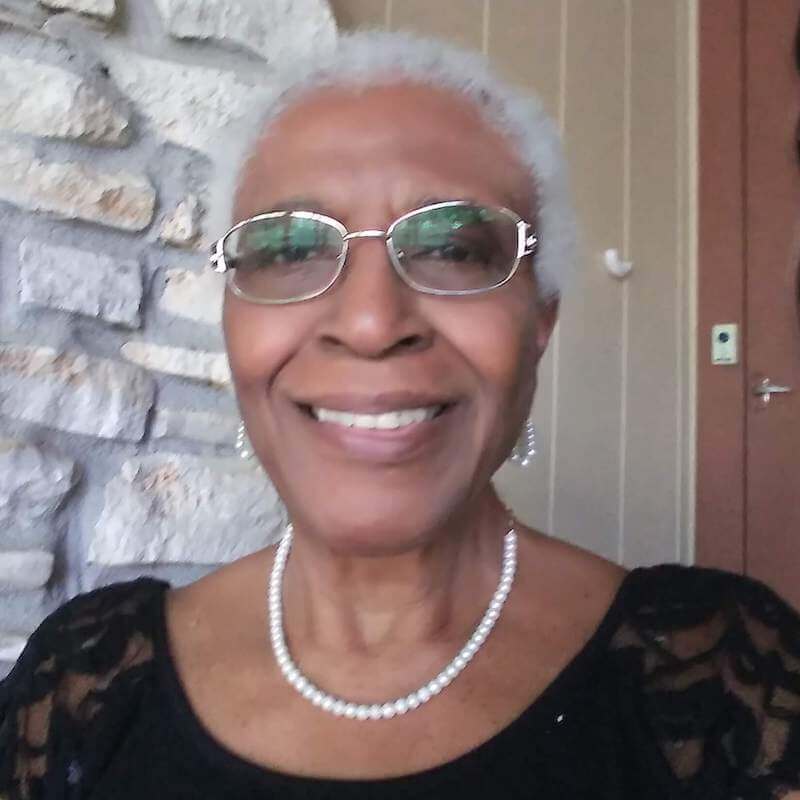
March 15, 2023
22 Years of Professional Development Success
Dr. Rosalee Martin, LCSW
Huston-Tillotson University, Austin Texas
In 2000, Huston-Tillotson University (HT) welcomed a new president, Dr. Larry Earvin. He brought to the faculty his desire for HT to become a member of the Faculty Resource Network (FRN) at New York University, as he was familiar with the wonderful opportunities it afforded his faculty at Clark Atlanta University. I immediately applied for the FRN Network Summer Program in 2001 which began my 22-year journey with the FRN. I participated in summer and winter seminars traveling to Greece, Puerto Rico, Hawaii, presented at their National Symposia, and was a fall and summer Scholar-in-Residence.
Let me be more specific about FRN’s value to my professional development. FRN chose critical themes to address issues and concerns of the time, and chose experts in the field to provide me with both academic and experiential learning. For example I participated in the 2009 seminar on Changing Places, Changing Faces: Recent Immigrant Settlement in the United States and Its Consequences where the time was split between the classroom and field trips to immigrant settlements in New York City. Other opportunities for experiential learning occurred in Greece in 2017, at the time when a refugee crisis was actually occurring. Many speakers provided expert analysis in the seminar Refugees and Migrants in the 21st Century. Greece, the birthplace of democracy, was the perfect place to host the seminar, Crisis in Democracy. Understanding the crisis in Hawaii between its original people and their immigrants who voted to make Hawaii a US state came when I participated in a 2013 seminar on Pacific People, Pacific Places.
FRN also provided opportunities to share my research and expertise at its National Symposia held in November, which I did on more than 12 occasions. I never presented alone, but with colleagues either from HT or colleagues from Xavier University of Louisiana or Clark Atlanta University. My presentations include: Using Case Studies (2011), Exploring Women’s Knowledge through Oral History (2012), Restorative Practices: Engaging Courageous Conversations (2019), We are in this together: Modality Change for Teaching Students in the Era of Covid-19 (2020), and two online panels (2021), Advancing Social Justice to Support LGBTQ+ on College Campuses in a Post Covid World, and Student Mental Health and Wellness.1
As a panelist, I worked closely with colleagues I would not normally work with, and in fact have become dear friends of mine. We now stay in touch, share each other’s research, encourage each other, and are supportive when necessary.
FRN supported me in another way. I was a 2006 fall Scholar-in-Residence where I was provided with housing on NYU’s campus, mentored by a famous sociologist, and given access to so many NYU resources. I actually saw Bishop TuTu there; a highlight of my stay. My research was on South Africa and HIV at the time examining patriarchal norms that influenced HIV status. I returned as a summer scholar in 2017 where I worked with two mentors who assisted me in writing a book on the history of HT that is now under contract. I also had the amazing opportunity to work with an individual hired by FRN to do the history of FRN. She gave me valuable pointers about the writing and publishing world.
I will be retiring from Huston Tillotson University in May 2023 after 50 years of service. FRN provided me with significant professional development opportunities that have positively impacted the students I teach. I am beholden to the FRN and will truly miss the opportunities for growth, networking and exploring new academic areas.
1FRN (2022) Redesigning Higher Education After Covid-19. Earl-Lewis, Monique, Sheila Gregory, Desette Johnson, Rosalee Martin. Online publication. https://facultyresourcenetwork.org/symposium/november-2021/advancing-social-justice-to-support-lgbtq-student-mental-health-and-wellness-on-college-campuses-in-a-post-covid-world/

